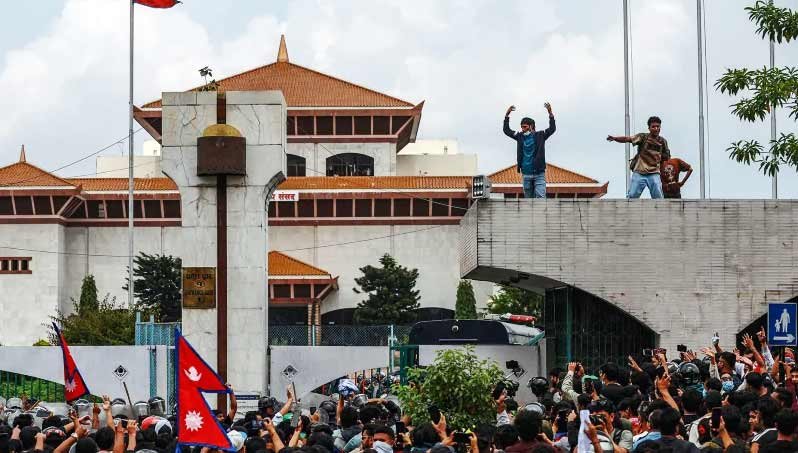Nepal’s Gen Z Protests: A Digital Ban Ignites a Fight for Freedom
In a powerful display of civic defiance, Nepal’s youth, now famously dubbed “Gen Z,” have taken to the streets, transforming a government social media ban into a nationwide movement against corruption and authoritarianism. What started as an online frustration has evolved into a a deadly confrontation, capturing global attention and raising critical questions about digital rights and freedom of expression.
The Social Media Ban: The Spark That Ignited a Movement
The crisis began with a seemingly bureaucratic move: the Nepalese government blocked 26 social media platforms, including widely used sites like Facebook, Instagram, and X (formerly Twitter). The official reason? These companies had failed to comply with new local registration requirements. However, many viewed the ban as a calculated attempt to stifle dissent and control the flow of information, particularly in a country where millions rely on these platforms for communication, news, and business.
This digital blackout was not just an inconvenience; it was a direct threat to the livelihoods and fundamental rights of countless citizens. The frustration quickly spilled offline as thousands of young people, many still in their school uniforms, mobilized in cities across the country. They carried signs demanding, “Shut down corruption, not social media,” making it clear that their anger ran deeper than just the ban.
Deadly Clashes and a Call for Accountability
The peaceful protests took a tragic turn as demonstrations in the capital, Kathmandu, and other cities erupted into violence. Eyewitness reports and videos shared online show police responding with disproportionate force, firing live ammunition, rubber bullets, tear gas, and water cannons into the crowds. The result was devastating: at least 19 protesters were killed, and hundreds more were injured, with many succumbing to serious injuries, including gunshot wounds to the head and chest.
The use of lethal force against unarmed citizens—many of them students—has drawn widespread condemnation from international human rights organizations and the United Nations, which has called for a swift and transparent investigation. In response to the public outrage and escalating violence, Nepal’s Home Minister resigned, and the government ultimately lifted the social media ban.
A Wider Fight for a Better Future
While the immediate trigger was the social media ban, the “Gen Z” protests are fundamentally about a deeper struggle. They are a powerful rejection of systemic government corruption and a demand for a more just and accountable society. Young Nepalese are using their collective voice to challenge the political elite, who they accuse of nepotism and neglecting the needs of the population.
This youth-led movement is a testament to the power of a connected generation. Despite the government’s attempts to silence them, they found ways to organize and make their voices heard, both on the streets and through alternative digital channels like VPNs. Their ongoing protests signal a new era of civic engagement in Nepal, one where the youth are no longer willing to be silent. The social media ban may have been lifted, but the fight for justice, transparency, and freedom of expression is far from over.
